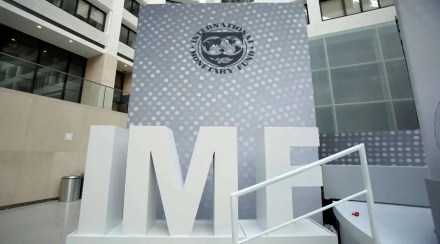India continues to remain a “relative bright spot” in the global economy, despite an expectation of slowing growth in 2023-24, the International Monetary Fund (IMF) reiterated on Tuesday. Inflation could prove to be a downside risk to faster growth in 2024-25, said a top official of the Fund.
The IMF has projected India to grow by 6.8% this fiscal before slowing to 6.1% in 2023-24 and then posting a recovery to 6.8% in 2024-25.
“Compared to the average growth for the emerging markets and developing economies, India’s growth rate is still higher. In that sense, a relative bright spot is not an inappropriate characterisation,” said Krishna Srinivasan, Director, Asia and Pacific Department, IMF at a roundtable with reporters from South Asia on Tuesday.
India’s contribution to global growth is also rising and is estimated at about 15%, he further said. In a blog on Tuesday, the IMF said China and India are expected to contribute more than half of global growth this year with the rest of Asia contributing an additional quarter.
Beyond the numbers, recent measures taken by the country also show a qualitative improvement including its response to the pandemic through policy support and vaccination as well as maintaining fiscal discipline in the Union Budget 2023-24.
“Also, in terms of the Budget, fiscal discipline has been maintained. When you think in terms of elections coming up, you always worry about a lack of fiscal discipline… But that hasn’t happened. The budget reflects the fiscal discipline, which is again, a bright thing,” Srinivasan said in response to another question, adding that other structural factors like digitalisation to address the pandemic and provide a basis for longer term growth are also noteworthy.
The Budget has stuck to its estimate of maintaining the fiscal deficit at 6.4% of the GDP in the current financial year and proposes to lower it to 5.9% in FY24.
On possible challenges to a recovery in economic growth in FY25, he said stickiness in inflation is a significant downside risk as it would impact domestic demand.
“So external headwinds are pretty significant. If the war intensifies, or if growth in the advanced economy slows more than expected, what would that mean? It means it has significant headwind for the year for the Indian economy. Also, if global financial conditions tighten, that will have a bearing … there are many risks to be taken into account. But given where we are right now, I would say inflation is the one we have to worry about in terms of impact on domestic demand,” he said.
Retail inflation rose to a three-month high of 6.52% in January 2023 with a number of food items turning more expensive and a continued stickiness in core inflation, although there is expectation that it would moderate in FY24.
